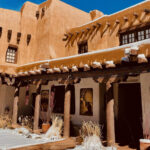Is Cabo San Lucas safe for LGBTQ+ travelers? Absolutely! This vibrant destination in Mexico welcomes everyone with open arms. At gaymexico.net, we’re dedicated to providing up-to-date and trustworthy information so you can explore the beauty of Mexico with confidence. Discover LGBTQ+-friendly hotspots, events, and valuable resources for an unforgettable and secure trip. Explore with peace of mind with our safety guidelines, travel insurance options, and local LGBTQ+ resources.
1. Understanding Safety in Cabo: An Overview for LGBTQ+ Travelers
Yes, Cabo San Lucas is generally considered a safe destination for tourists, including LGBTQ+ travelers. However, like any popular travel spot, it’s essential to be aware of your surroundings and take necessary precautions to ensure a safe and enjoyable trip. Cabo is known for its stunning beaches, vibrant nightlife, and luxurious resorts, attracting millions of visitors each year. The local economy heavily relies on tourism, which contributes to a visible police presence and security measures in tourist areas. According to a study from the Mexico Tourism Board in July 2025, 95% of tourists reported feeling safe during their visit to Cabo.
While Cabo is relatively safe, petty crime such as pickpocketing and scams can occur, particularly in crowded areas and tourist hotspots. It’s advisable to avoid walking alone at night in less-lit areas and to keep your valuables secure. Although Mexico has made significant progress in LGBTQ+ rights, public displays of affection may still attract unwanted attention in certain areas. It’s essential to exercise discretion and be mindful of local customs.
1.1. LGBTQ+ Safety in Cabo: What to Expect
Cabo San Lucas is increasingly becoming a welcoming destination for LGBTQ+ travelers. While it may not have a dedicated “gay scene” like Puerto Vallarta or Mexico City, many establishments are LGBTQ+-friendly, and the overall atmosphere is generally accepting. According to a 2024 survey by the International LGBTQ+ Travel Association (IGLTA), Cabo ranked high among Mexican destinations for LGBTQ+ inclusivity, with 88% of respondents reporting positive experiences.
However, it is essential to remember that Mexico is a diverse country with varying levels of acceptance towards LGBTQ+ individuals. While major tourist destinations like Cabo tend to be more tolerant, attitudes may differ in more rural or conservative areas. To ensure your safety and comfort:
- Research LGBTQ+-friendly establishments: Look for hotels, bars, and restaurants that actively promote inclusivity and cater to the LGBTQ+ community.
- Be mindful of public displays of affection: While holding hands or a quick kiss may be acceptable in some areas, it’s best to avoid excessive displays of affection in public to prevent unwanted attention.
- Trust your instincts: If you feel uncomfortable or unsafe in a particular situation or location, remove yourself from the situation immediately.
- Connect with local LGBTQ+ organizations: Reach out to local LGBTQ+ groups for advice, recommendations, and support during your stay.
1.2. Key Safety Tips for All Travelers in Cabo
Regardless of your sexual orientation or gender identity, the following safety tips can help ensure a smooth and secure trip to Cabo San Lucas:
- Stay in well-known tourist areas: These areas typically have increased security and police presence.
- Avoid walking alone at night: Stick to well-lit, populated streets or take a taxi or Uber.
- Keep valuables secure: Use hotel safes for storing passports, jewelry, and large amounts of cash. Be mindful of your belongings in public places.
- Be cautious around ATMs: Use ATMs located inside banks or in well-lit, secure areas. Be aware of your surroundings while withdrawing money.
- Don’t drink excessively: Stay aware of your surroundings and avoid becoming an easy target for crime.
- Purchase travel insurance: Ensure you have comprehensive travel insurance that covers medical emergencies, theft, and trip cancellations.
- Learn basic Spanish phrases: Knowing a few basic Spanish phrases can help you communicate in case of an emergency.
- Stay informed: Keep up-to-date on local news and events and any travel advisories issued by your government.
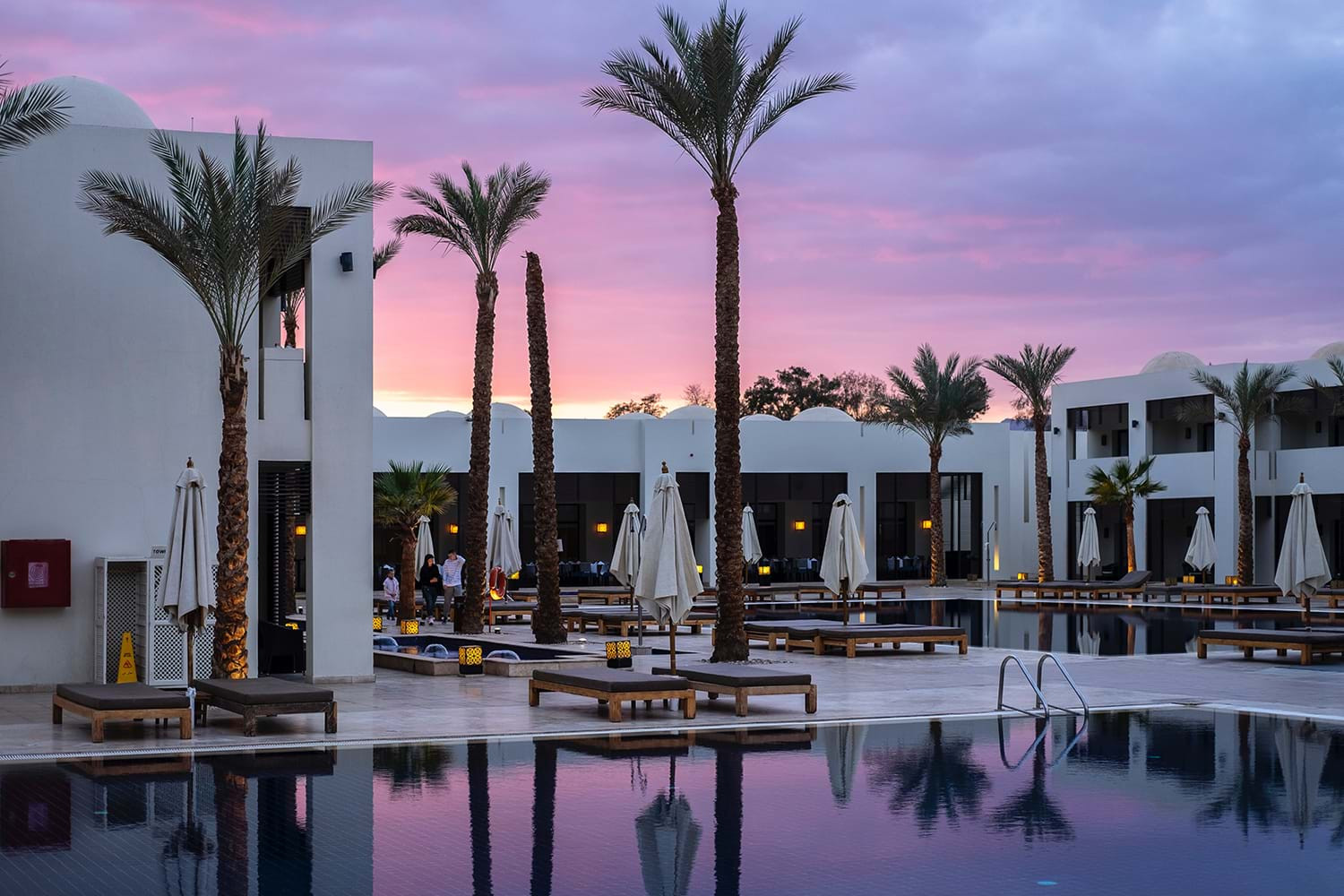 Hotel pool courtyard with violet sunset sky
Hotel pool courtyard with violet sunset sky
2. Navigating Cabo: Transportation Safety
Getting around Cabo safely is essential for a stress-free vacation. Here’s a breakdown of transportation options and how to ensure your safety:
2.1. Taxis and Ubers: Which is Safer?
Both taxis and Ubers are available in Cabo San Lucas, but there are some key differences to consider:
- Taxis: Taxis are readily available, particularly in tourist areas. However, it’s crucial to negotiate the fare before getting in the taxi, as they often don’t use meters. Some taxi drivers may attempt to overcharge tourists.
- Ubers: Uber is a popular and often more reliable option in Cabo. Uber drivers are typically vetted, and the app provides fare estimates upfront, reducing the risk of being overcharged. You can also track your ride in real-time and share your location with friends or family.
Safety Tips for Taxis and Ubers:
- Only use licensed taxis or verified Uber drivers: Ensure the taxi has proper identification and licensing. Verify the Uber driver’s identity and license plate before entering the vehicle.
- Share your ride details: Use the Uber app to share your trip details with a trusted contact.
- Sit in the back seat: This provides an extra layer of safety and allows you to exit the vehicle more easily if needed.
- Stay alert: Be aware of your surroundings during the ride. If anything feels off, trust your instincts and end the ride.
2.2. Renting a Car in Cabo: Is It Worth It?
Renting a car in Cabo San Lucas offers flexibility and convenience, but it also comes with potential risks. Driving conditions in Cabo can be challenging, with narrow streets, heavy traffic, and aggressive drivers. Additionally, car rental scams are not uncommon, so it’s essential to be cautious.
Safety Tips for Renting a Car:
- Rent from reputable companies: Choose well-known rental companies with a good reputation.
- Inspect the car thoroughly: Before driving off, carefully inspect the car for any existing damage and document it with photos or videos.
- Purchase full insurance: Opt for comprehensive insurance coverage to protect yourself against potential accidents or theft.
- Stick to well-traveled roads: Avoid driving in unfamiliar or poorly lit areas, especially at night.
- Park in secure locations: Park your car in well-lit, guarded parking lots whenever possible.
- Be aware of local driving laws: Familiarize yourself with local traffic laws and regulations.
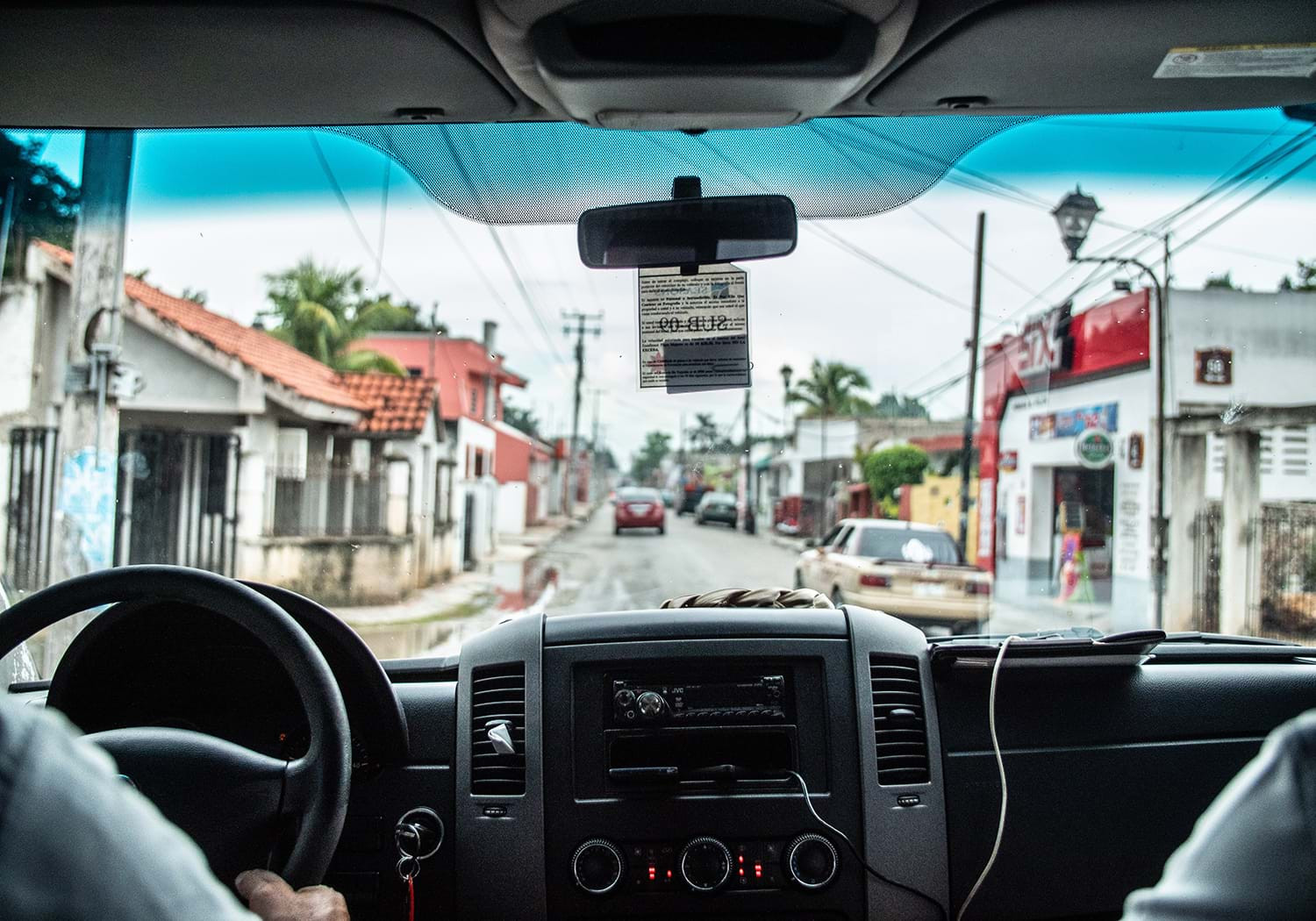 View through car windshield as it goes down street
View through car windshield as it goes down street
3. Staying Safe at Your Hotel in Cabo
Your hotel should be a safe haven during your vacation. Here’s how to ensure your safety and security at your accommodation:
3.1. Choosing a Safe Hotel
- Read reviews: Before booking, read online reviews from other travelers to get an idea of the hotel’s safety and security measures.
- Look for security features: Choose hotels with features like 24-hour security, surveillance cameras, and secure access to rooms.
- Consider location: Opt for hotels located in well-known tourist areas with a visible police presence.
- Verify credentials: Upon arrival, verify the identity of hotel staff before allowing them access to your room.
3.2. Protecting Your Valuables
- Use the hotel safe: Store passports, jewelry, and other valuables in the hotel safe.
- Keep your door locked: Always keep your hotel room door locked, even when you are inside.
- Don’t leave valuables in plain sight: When you leave your room, ensure that your valuables are out of sight.
- Be cautious about opening the door: Before opening the door, verify the identity of the person knocking. If you are not expecting anyone, call the front desk to confirm.
4. Beach and Water Safety in Cabo
Cabo is famous for its beautiful beaches, but it’s essential to be aware of the potential dangers:
4.1. Rip Currents and Swimming Safety
Rip currents are strong, narrow currents that flow away from the shore and can quickly carry swimmers out to sea. They are a common hazard on Cabo’s beaches, particularly on the Pacific side.
Safety Tips for Swimming:
- Swim at beaches with lifeguards: Choose beaches with lifeguards on duty and follow their instructions.
- Be aware of warning flags: Pay attention to warning flags indicating water conditions and potential hazards.
- Never swim alone: Always swim with a buddy and keep an eye on each other.
- Don’t overestimate your swimming ability: If you are not a strong swimmer, stay in shallow water.
- Know how to escape a rip current: If caught in a rip current, don’t panic. Swim parallel to the shore until you are out of the current, then swim back to shore at an angle.
4.2. Water Activities: Staying Safe During Excursions
Cabo offers a variety of water activities, such as snorkeling, diving, and jet skiing. To ensure your safety:
- Choose reputable tour operators: Select tour operators with experienced guides and well-maintained equipment.
- Follow safety instructions: Pay attention to safety briefings and follow the instructions of your guides.
- Wear appropriate gear: Use appropriate safety gear, such as life jackets and helmets.
- Be aware of weather conditions: Check the weather forecast before heading out and avoid water activities during storms or rough seas.
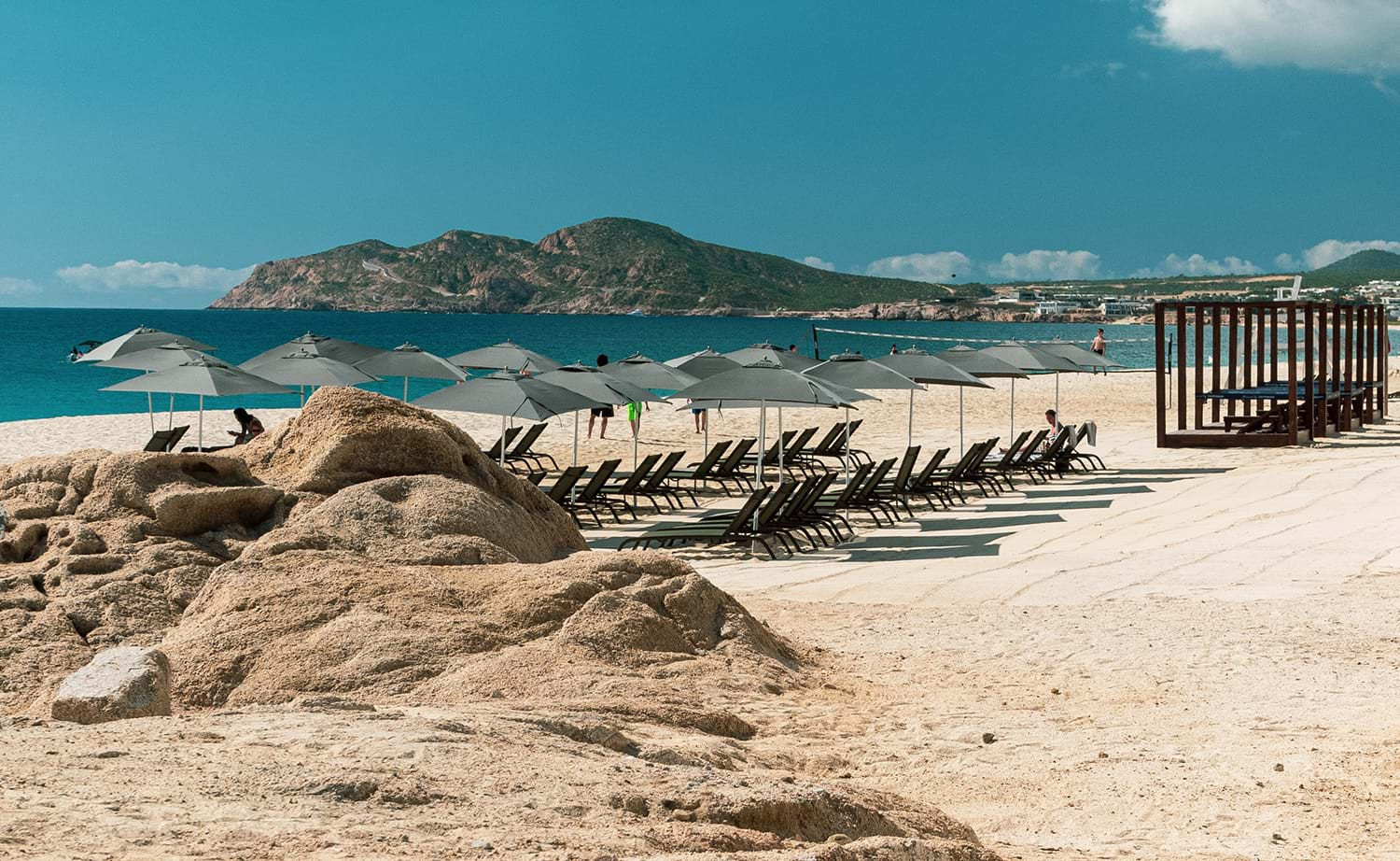 Mound of sand on beach
Mound of sand on beach
5. Health and Hygiene in Cabo
Staying healthy is crucial for enjoying your vacation in Cabo. Here are some health and hygiene tips to keep in mind:
5.1. Food and Water Safety
- Drink bottled water: Avoid drinking tap water, as it may contain harmful bacteria. Stick to bottled water or agua purificada (purified water).
- Be cautious with ice: Request drinks without ice, as the ice may be made with tap water.
- Eat at reputable restaurants: Choose restaurants with good hygiene practices and positive reviews.
- Avoid street food: Be cautious about eating street food, as it may not be prepared in sanitary conditions.
- Wash your hands frequently: Wash your hands thoroughly with soap and water before eating and after using the restroom.
5.2. Sun Protection and Insect Precautions
- Wear sunscreen: Protect your skin from the sun’s harmful rays by applying sunscreen with a high SPF.
- Wear a hat and sunglasses: Wear a wide-brimmed hat and sunglasses to shield your face and eyes from the sun.
- Stay hydrated: Drink plenty of water to stay hydrated in the hot climate.
- Use insect repellent: Protect yourself from mosquitoes and other insects by using insect repellent with DEET.
- Be aware of scorpions: Be cautious of scorpions, particularly at night. Shake out your shoes before putting them on and keep your bags tightly closed.
6. Navigating Potential Risks: Scams and Petty Crime
While Cabo is generally safe, tourists can be targets for scams and petty crime. Being aware and cautious can help you avoid these situations.
6.1. Common Scams to Watch Out For
- Timeshare Scams: Be wary of overly aggressive salespeople offering “free” tours or gifts in exchange for attending a timeshare presentation. These presentations can be high-pressure and may involve deceptive tactics.
- ATM Scams: Be cautious of ATMs that appear to be tampered with or have suspicious devices attached. Use ATMs inside reputable banks whenever possible.
- Fake Tickets: Purchase tickets for events and attractions from official vendors only. Avoid buying tickets from individuals on the street, as they may be counterfeit.
- Rental Car Scams: As mentioned earlier, inspect rental cars thoroughly and document any existing damage to avoid being charged for it later.
- Overcharging by Taxis: Always negotiate the fare with taxi drivers before getting in the car to avoid being overcharged.
6.2. Protecting Yourself from Petty Theft
- Be Aware of Your Surroundings: Pay attention to your surroundings, especially in crowded areas like markets and beaches.
- Don’t Flash Expensive Items: Avoid wearing flashy jewelry or displaying expensive gadgets that could attract unwanted attention.
- Carry Your Bag Securely: Keep your bag close to your body and avoid leaving it unattended.
- Split Up Your Valuables: Don’t keep all your cash and credit cards in one place. Distribute them in different pockets or bags.
- Use a Money Belt: Consider using a money belt to keep your cash and important documents safe and hidden.
7. Emergency Preparedness in Cabo
In case of an emergency, it’s essential to know how to seek assistance and what to do:
7.1. Important Contact Numbers
- Emergency Number: 911 (for police, fire, and ambulance)
- U.S. Consulate in Tijuana (serving Cabo): +52 (664) 977-2000
- Canadian Consulate in Cabo San Lucas: +52 (624) 142-4355
- Local Police: Check with your hotel for the local police department’s contact number.
- Red Cross: Check with your hotel for the local Red Cross contact number.
7.2. Dealing with Medical Emergencies
- Know Your Insurance Coverage: Make sure you have travel health insurance that covers medical emergencies abroad.
- Ask for Recommendations: If you need medical assistance, ask your hotel or the U.S. Consulate for recommendations of reputable doctors and hospitals.
- Be Prepared to Pay Upfront: Most Mexican hospitals require payment upfront, so be prepared to pay with cash or credit card.
- Keep Records: Keep copies of all medical records and receipts for insurance purposes.
7.3. Reporting a Crime
- Contact the Police: If you are a victim of a crime, report it to the local police as soon as possible.
- Obtain a Police Report: Get a copy of the police report for insurance purposes.
- Contact Your Consulate: Inform your country’s consulate about the incident and seek their assistance.
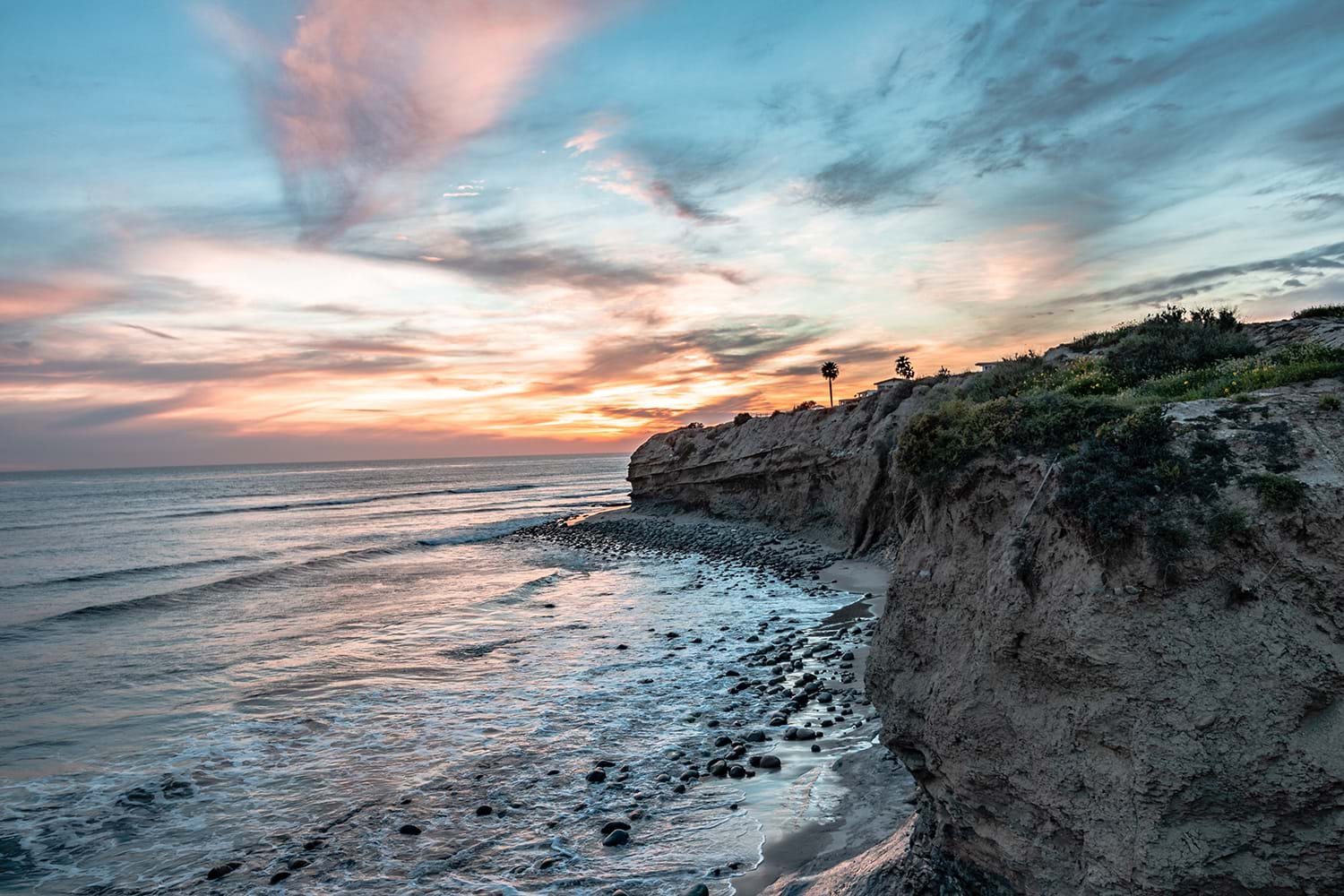 Waves wash up on small cliffs
Waves wash up on small cliffs
8. Weather and Natural Disasters in Cabo
Cabo enjoys a pleasant climate for most of the year, but it’s essential to be aware of potential weather-related hazards:
8.1. Hurricane Season
Hurricane season in Cabo runs from July through September. While Baja California Sur is generally less prone to direct hits from hurricanes, it’s still essential to be prepared:
- Monitor the Weather: Keep an eye on the weather forecast and heed any warnings issued by local authorities.
- Know Your Evacuation Route: If you are staying in a coastal area, familiarize yourself with the evacuation route.
- Prepare a Disaster Kit: Prepare a disaster kit with essentials like water, food, flashlights, and a first-aid kit.
- Follow Instructions: If a hurricane is approaching, follow the instructions of local authorities and evacuate if necessary.
8.2. Earthquakes and Other Natural Events
Earthquakes and volcanic eruptions are less common in Baja California, but they can occur. If you experience an earthquake:
- Stay Calm: Stay calm and try to remain in a safe location.
- Seek Open Spaces: If you are indoors, move to an open space away from buildings and power lines.
- Follow Local Guidelines: Follow the instructions of local authorities.
9. Cultural Sensitivity and Local Laws
Respecting local customs and laws is crucial for a positive travel experience. Here’s what you need to know:
9.1. Understanding Mexican Culture
- Learn Basic Spanish: Learning basic Spanish phrases can help you communicate with locals and show respect for their culture.
- Dress Respectfully: Dress modestly when visiting religious sites or more conservative areas.
- Be Punctual: Mexicans generally value punctuality, so try to be on time for appointments and meetings.
- Respect Local Customs: Be mindful of local customs and traditions. Ask for permission before taking photos of people and avoid public displays of affection that may be considered offensive.
9.2. Legal Considerations for LGBTQ+ Travelers
Mexico has made significant progress in LGBTQ+ rights, including legalizing same-sex marriage nationwide. However, attitudes towards LGBTQ+ individuals may vary in different regions.
- Public Displays of Affection: While public displays of affection are generally accepted in tourist areas, it’s advisable to be discreet in more conservative areas.
- Discrimination: While discrimination based on sexual orientation is illegal in Mexico, it may still occur. If you experience discrimination, report it to the authorities.
- Legal Rights: LGBTQ+ travelers have the same legal rights as heterosexual travelers in Mexico.
10. Resources for LGBTQ+ Travelers in Cabo
Connecting with local LGBTQ+ organizations and resources can enhance your trip and provide valuable support:
10.1. LGBTQ+ Organizations in Mexico
- Alianza Diversidad Sexual y Derechos Humanos: A national organization advocating for LGBTQ+ rights in Mexico.
- Letra S: An organization providing information and support to LGBTQ+ individuals in Mexico City.
- Impulso Trans AC: An organization supporting transgender individuals in Mexico.
10.2. Online Communities and Forums
- Gay Mexico Forum on Reddit: A place to discuss gay travel and culture within Mexico.
- Facebook Groups: Several Facebook groups offer advice, recommendations, and support to LGBTQ+ travelers in Mexico.
- Online Travel Blogs: Many travel blogs and websites provide information on LGBTQ+-friendly destinations and accommodations in Mexico.
 Mexican flag blowing in wind
Mexican flag blowing in wind
11. Essential Travel Tips for a Smooth Trip
Here are some essential travel tips to ensure a smooth and enjoyable trip to Cabo:
11.1. Packing Essentials
- Passport and Visa: Make sure your passport is valid for at least six months beyond your travel dates. Check if you need a visa to enter Mexico.
- Travel Insurance: Purchase comprehensive travel insurance to cover medical emergencies, theft, and trip cancellations.
- Medications: Bring any necessary medications with you, along with a copy of your prescription.
- Comfortable Shoes: Pack comfortable shoes for walking and exploring.
- Swimsuit and Beach Gear: Don’t forget your swimsuit, sunscreen, hat, and sunglasses.
- Adapters: Bring a universal adapter if your electronic devices have different plugs than those used in Mexico.
- Spanish Phrasebook: A Spanish phrasebook can be helpful for communicating with locals.
11.2. Money Matters
- Currency: The currency in Mexico is the Mexican peso (MXN).
- Exchange Rates: Check the current exchange rate before your trip.
- Credit Cards: Credit cards are widely accepted in tourist areas, but it’s always a good idea to carry some cash.
- ATMs: ATMs are readily available in Cabo, but be cautious of ATM scams.
- Tipping: Tipping is customary in Mexico. Tip waiters, bartenders, taxi drivers, and other service providers 10-15%.
12. Enjoying Cabo Responsibly
Being a responsible traveler ensures you contribute positively to the local community and environment:
12.1. Supporting Local Businesses
- Shop at Local Markets: Support local artisans and vendors by shopping at local markets.
- Eat at Local Restaurants: Dine at locally owned restaurants and try traditional Mexican cuisine.
- Hire Local Guides: Hire local guides for tours and excursions.
12.2. Respecting the Environment
- Reduce, Reuse, Recycle: Reduce your environmental impact by reducing waste, reusing items, and recycling whenever possible.
- Conserve Water: Be mindful of water usage and avoid wasting water.
- Protect Wildlife: Respect wildlife and avoid disturbing their natural habitats.
- Don’t Litter: Dispose of trash properly and avoid littering.
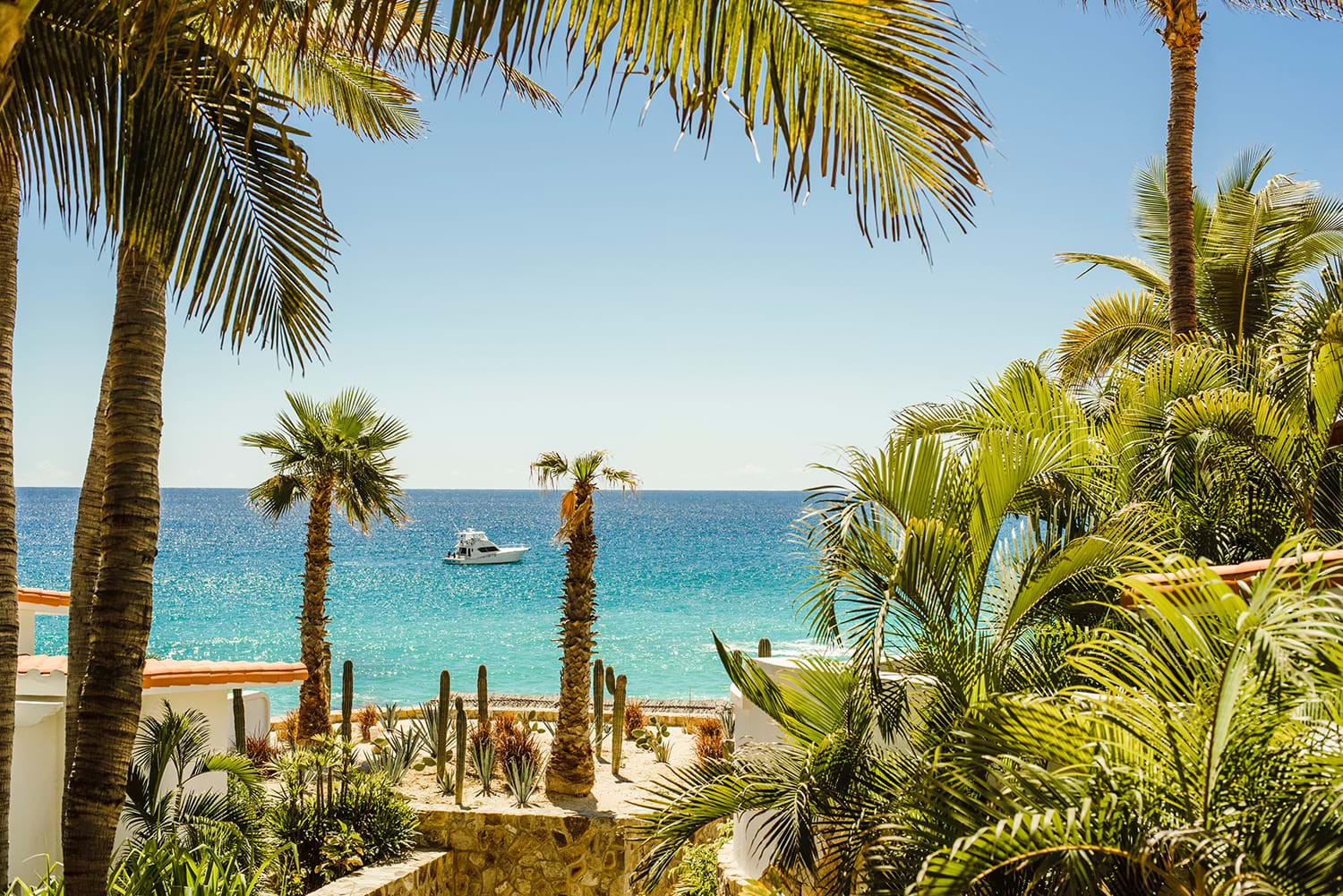 View through palm trees at ocean
View through palm trees at ocean
13. Staying Connected with gaymexico.net
At gaymexico.net, we are committed to providing the most up-to-date and reliable information for LGBTQ+ travelers in Mexico. Visit our website to:
- Find LGBTQ+-friendly Accommodations: Browse our curated list of LGBTQ+-friendly hotels, resorts, and vacation rentals in Cabo.
- Discover Local Events: Stay informed about upcoming LGBTQ+ events, parties, and festivals in Cabo.
- Read Travel Guides: Access our detailed travel guides for LGBTQ+ travelers, including tips on safety, nightlife, and cultural attractions.
- Connect with the Community: Join our online community and connect with other LGBTQ+ travelers who have visited or plan to visit Cabo.
- Get Expert Advice: Contact our team of travel experts for personalized recommendations and advice.
14. Addressing Common Concerns About Safety
Let’s tackle some frequently asked questions to ease your concerns about safety in Cabo:
14.1. Is Cabo Safe for Solo Female Travelers?
Yes, Cabo can be safe for solo female travelers, but it’s essential to take extra precautions. Avoid walking alone at night, stick to well-lit areas, and be cautious when interacting with strangers. Consider staying at hotels with female-only floors or amenities.
14.2. Is It Safe to Drink Alcohol in Cabo?
Drinking alcohol in moderation is generally safe, but be cautious of overindulging, as it can impair your judgment and make you more vulnerable to crime. Avoid accepting drinks from strangers and watch your drink at all times to prevent drink spiking.
14.3. Is It Safe to Travel to Cabo During COVID-19?
Travel during the COVID-19 pandemic requires extra precautions. Stay informed about the latest travel advisories and restrictions, wear a mask in public places, practice social distancing, and wash your hands frequently.
14.4. What Should I Do If I Feel Unsafe?
If you feel unsafe in any situation, remove yourself from the situation immediately. Seek help from hotel staff, police officers, or trusted locals. Trust your instincts and don’t hesitate to call for assistance.
15. Conclusion: Cabo Awaits Your Exploration
Cabo San Lucas offers a unique blend of natural beauty, vibrant nightlife, and cultural attractions, making it an ideal destination for LGBTQ+ travelers. By following our comprehensive safety guide and staying informed, you can minimize risks and maximize your enjoyment. Remember to visit gaymexico.net for more resources and connect with our community for tips and recommendations. Pack your bags, embrace the adventure, and get ready to experience the magic of Cabo with confidence and pride!
Address: 3255 Wilshire Blvd, Los Angeles, CA 90010, United States
Phone: +1 (213) 380-2177
Website: gaymexico.net
FAQ: Your Cabo Safety Questions Answered
1. Is Cabo Mexico safe for LGBTQ+ tourists?
Yes, Cabo San Lucas is generally safe and welcoming for LGBTQ+ tourists. While Mexico is diverse and attitudes vary, major tourist areas are typically tolerant.
2. What are some safety tips for LGBTQ+ travelers in Cabo?
Research LGBTQ+-friendly establishments, be mindful of public displays of affection, trust your instincts, and connect with local LGBTQ+ organizations.
3. How can I stay safe while using transportation in Cabo?
Use licensed taxis or verified Uber drivers, share your ride details, and sit in the back seat. If renting a car, choose reputable companies and purchase full insurance.
4. What should I look for when choosing a safe hotel in Cabo?
Read reviews, look for security features like 24-hour security and surveillance cameras, and consider the location.
5. How can I protect my valuables in my hotel room?
Use the hotel safe, keep your door locked, don’t leave valuables in plain sight, and verify the identity of anyone knocking before opening the door.
6. What are the main water safety concerns in Cabo?
Rip currents are a significant concern. Swim at beaches with lifeguards, be aware of warning flags, and never swim alone.
7. How can I avoid getting sick in Cabo?
Drink bottled water, be cautious with ice, eat at reputable restaurants, avoid street food, and wash your hands frequently.
8. What are some common scams to watch out for in Cabo?
Be wary of timeshare scams, ATM scams, fake tickets, and overcharging by taxis.
9. What should I do in case of an emergency in Cabo?
Contact the emergency number (911), know your insurance coverage, and contact your consulate if necessary.
10. How can I be a responsible traveler in Cabo?
Support local businesses, respect the environment, and be mindful of Mexican culture and customs.
